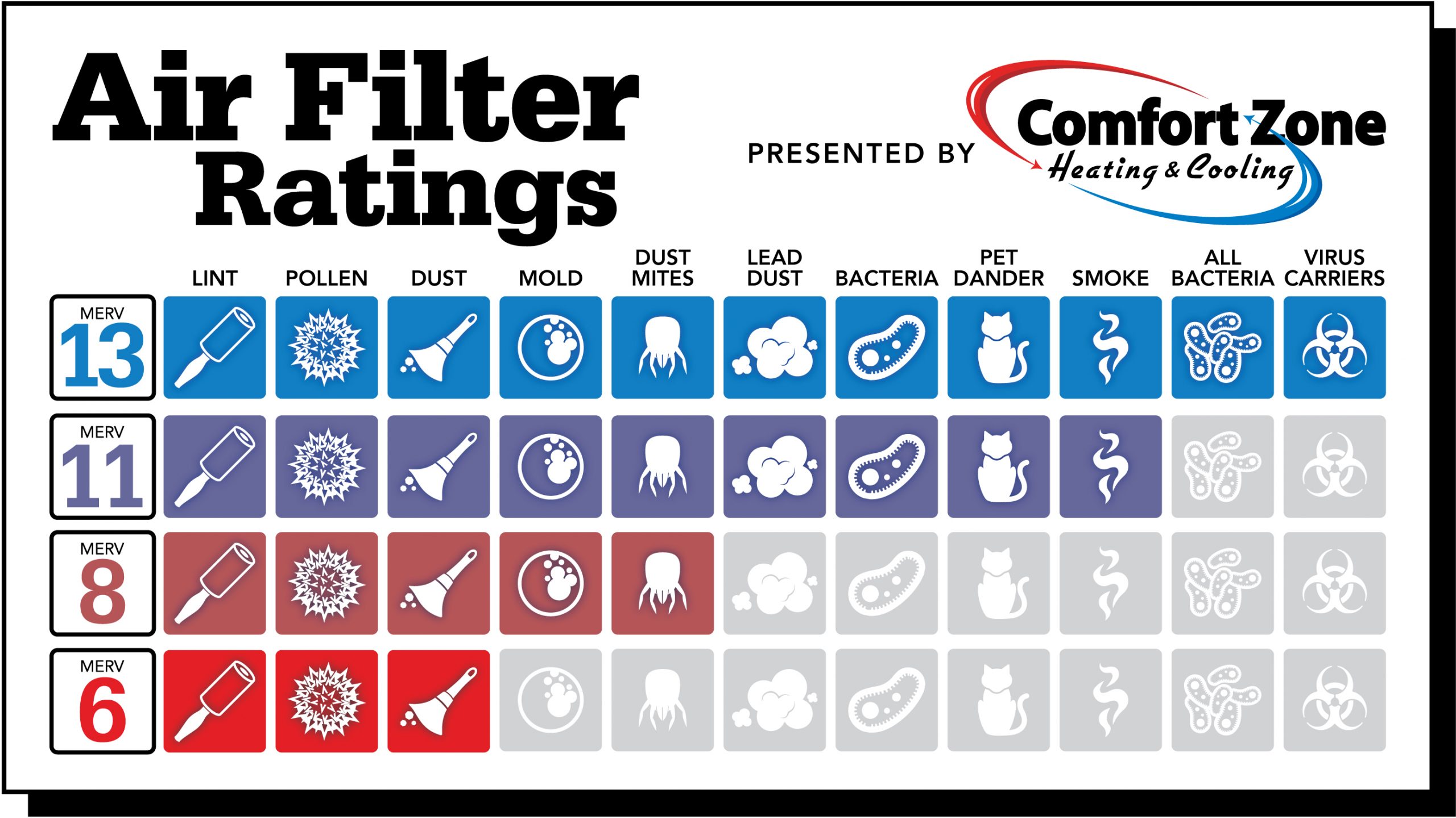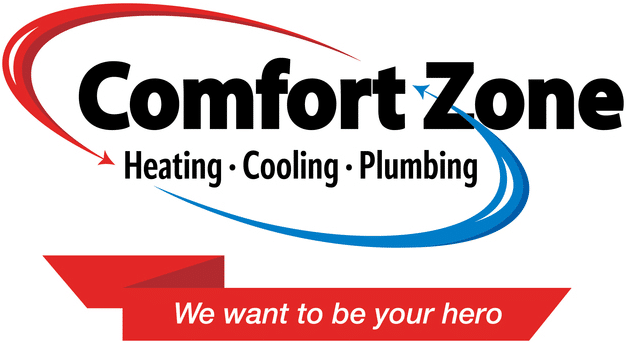As the allergy season approaches, your air filter can make a big difference in your indoor air quality. Homeowners should change their air filters every four to six weeks. If air filters aren’t changed regularly, contaminants may be circulated directly into your home’s living spaces, significantly decreasing air quality. Additionally, homeowners should make sure they install filters with the MERV rating recommended for their HVAC systems.
The Minimum Efficiency Reporting Value, commonly known as the MERV rating, is a standard that rates the overall effectiveness of air filters. The scale for MERV ranges from 1 to 20. A higher MERV rating means better filtering performance.
Effective home filters have MERV ratings in the range of 6 to 13. Any of these filters will capture a range of particulates such as lint, dust, mold spores, bacteria, dust mites, tobacco smoke, pet dander, and pollen, but a filter with a higher MERV has a higher capturing capacity.
For those who suffer from allergies, filters in the 9 to 13 MERV range are highly effective. These filters capture particles as small as 0.3 microns, and allergens are typically 0.3 to 0.7 microns, you can be sure that these impurities will be removed from your home’s indoor air.
Spring is just around the corner. Don’t let allergies ruin the warm days of spring. Instead, call our experts, and let us equip your home with an air filter that can help.

